Your search “Keep%20the%20Death%20Penalty%20Abolished%20fin%20the%20Philippfines%20%20%20%20%20%20%20%20%20%20/page/www.deathpenaltyindia.com/img/pages/resources/2017Statistics.pdf ”
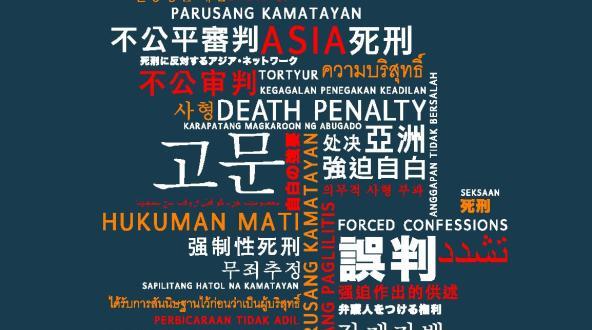
Article(s)
Asia: Stop executions and unfair trials
By ADPAN, on 6 December 2011
A hard-line group of Asian countries are defying the global trend against the death penalty and putting to death thousands of people after unfair trials every year, the Anti-Death Penalty Asia Network (ADPAN) said today in a new report.
2011
Article(s)
WANTED: Program and Admin Assistant
By World Coalition Against the Death Penalty, on 19 August 2016
The World Coalition Against the Death Penalty is looking for an intern for a period of 6 months, starting mid-September.
2016
Article(s)
Program and Admin Assistant
By World Coalition Against the Death Penalty, on 5 January 2017
The World Coalition Against the Death Penalty recruits interns twice a year for a period of 6 months (from March to August and from September to February).
2017
Document(s)
THE RACIAL GEOGRAPHY OF THE FEDERAL DEATH PENALTY
By Robert J. Smith / Ben Cohen / Washington Law Review, on 1 January 2010
2010
Article
United States
More details See the document
Scholars have devoted substantial attention to both the overrepresentation of black defendants on federal death row and the disproportionate number of federal defendants charged capitally for the murder of white victims. This attention has not explained (much less resolved) these disquieting racial disparities. Little research has addressed the unusual geography of the federal death penalty, in which a small number of jurisdictions are responsible for the vast majority of federal death sentences. By addressing the unique geography, we identify a possible explanation for the racial distortions in the federal death penalty: that federal death sentences are sought disproportionately where the expansion of the venire from the county to the district level has a dramatic demographic impact on the racial make-up of the jury. This inquiry demonstrates that the conversation concerning who should make up the jury of twelve neighbors and peers—a discussion begun well before the founding of our Constitution—continues to have relevance today. Louisiana, Missouri, Virginia and Maryland referred to.
- Document type Article
- Countries list United States
- Themes list Networks,
Document(s)
Moving away from the death penalty
By Office of the High Commissioner for Human Rights (OHCHR) , on 1 January 2015
2015
International law - United Nations
More details See the document
The present publication provides an extensive review of global trends in death penalty matters, a summary of the applicable international legal standards, and the current status of legislative reform related to the death penalty in South-East Asia. As a product of the OHCHR Regional Office for South-East Asia, this publication is intended to be a resource for further discussions in the region toward the abolition of the death penalty.
- Document type International law - United Nations
- Themes list Trend Towards Abolition,
Document(s)
How the European Union Works: Your guide to the EU institutions
By European Union, on 1 January 2007
2007
Working with...
fresMore details See the document
The European Union (EU) is a family of democratic European countries working together to improve life for their citizens and to build a better world. The following chapters describe the Treaties, the EU institutions and the other bodies and agencies, explaining what each entity does and how they interact.
- Document type Working with...
- Themes list Networks,
- Available languages Comment fonctionne l'Union européenneEl Funcionamiento de la Unión Europea: Guía del Ciudadano sobre las Instituciones de la UE
Document(s)
Middle East and North Africa: Algeria, Egypt, Jordan, Lebanon, Morocco and Tunisia
By Penal Reform International, on 1 January 2012
2012
NGO report
More details See the document
The aim of this research paper is to provide upto-date information about the laws and practices relating to the application of the death penalty. It includes an analysis of the alternative anctions to the death penalty (life and long-term imprisonment) and whether they reflect international human rights standards and norms.
- Document type NGO report
- Themes list Cruel, Inhuman and Degrading Treatment and Punishment, Death Row Phenomenon, Country/Regional profiles,
Document(s)
A Perverse and Ominous Enterprise: The Death Penalty and Illegal Executions in Saudi Arabia
By Helena Kennedy, on 1 January 2019
2019
International law - Regional body
More details See the document
The evidence reviewed demonstrates frequent and heavy-handed recourse to the death penalty by Saudi Arabia in recent months. At least 149 people were executed in 2018, with at minimum 46 remaining on death row at the end of the year. A significant proportion of those executed were political dissidents, and a number were children at the time of their alleged offending. Each of these features connotes a grave violation of international human rights norms.
- Document type International law - Regional body
Document(s)
Georgian : უვადო თავისუფლების აღკვეთისა და გრძელვადიანი სასჯელების გამოყენება და აღსრულება საქართველოში
By Penal Reform International / Tsira Chanturia / Maia Khasia / Jacqueline Macalesher, on 8 September 2020
2020
NGO report
ruMore details See the document
საქართველოში ბოლო განაჩენი სიკვდილით დასჯის შესახებ აღსრულებულ იქნა სავარაუდოდ 1992/93 წლებში. სიკვდილით დასჯილთა შესახებ სტატისტიკურიინფორმაცია გამოთხოვილ იქნა სასჯელაღსრულების პრობაციისა და იურიდიული დახმარების სამინისტროს სასჯელაღსრულების დეპარტამენტიდან, თუმცა მიღებული პასუხის თანახმად, აღნიშნული ინფორმაცია ვერ იქნა მოძიებული
- Document type NGO report
- Themes list Trend Towards Abolition,
- Available languages Отмена смертной казни и альтернативные наказания на Южном Кавказе: Азербайджан, Армения, Грузия
Document(s)
Death Penalty in the Palestinian Legal System: A Legal Review
By Maan Shihda Ideis / Independent Commission for Human Rights , on 1 January 2010
2010
International law - Regional body
arMore details See the document
ICHR carried out this review in order to assist the PNA in its attempts to join international community that did abolish death penalty from their legal system. In order for the PNA to ratify the various international conventions stipulating respect for the right to life and prohibits the execution of every human being. In this study, ICHR aims to define the practical steps that the PNA should take in order to abolish death penalty from the Palestinian legal system. According to Article (10) of the Basic Law of 2002, the human rights and fundamental freedoms shall be binding and respected by the PNA which shall, without delay, accede to the regional and international declarations and instruments that protect human rights, especially those international charters and resolutions that governing the right to life, the abolition of death penalty, and/or placing restrictions on the procedures of its execution.
- Document type International law - Regional body
- Themes list Networks,
- Available languages مراجعة قانونية لعقوبة الإعدام في سطيني
Document(s)
The abolition of the death penalty and its alternative sanction in Eastern Europe: Belarus, Russia and Ukraine
By Penal Reform International / Alla Pokras, on 1 January 2012
2012
NGO report
ruMore details See the document
This research paper focuses on the application of the death penalty and its alternative sanction in three countries of Eastern Europe: the Republic of Belarus, the Russian Federation and kraine. Its aim is to provide up-to-date information about the laws and practices relating to the application of the death penalty in this region, including an analysis of the alternative sanctions to the death penalty and whether they reflect international human rights standards and norms.
- Document type NGO report
- Themes list Cruel, Inhuman and Degrading Treatment and Punishment, Death Row Phenomenon, Country/Regional profiles,
- Available languages Отмена смертной казни и ее альтернативы в странах Восточной Европы: Беларуси, России, Украине
Document(s)
Briefing Paper on the death penalty in Middle East & North Africa
By Penal Reform International, on 8 September 2020
2020
Academic report
More details See the document
NGO coalition report submitted to the Office of the United Nations High Commissioner on Human Rights
- Document type Academic report
Document(s)
REPORT AND RECOMMENDATIONS ON THE ADMINISTRATION OF THE DEATH PENALTY IN CALIFORNIA
By CALIFORNIA COMMISSION ON THE FAIR ADMINISTRATION OF JUSTICE, on 1 January 2008
2008
Government body report
More details See the document
This report is divided into three parts. In Part A, the Commission identifies flaws in California’s death penalty system that render it dysfunctional, and remedies we unanimously recommend to repair it. Repairing the system would enable California to achieve the national average of a twelve year delay between pronouncement of sentence and the completion of all judicial review of the sentence. In Part B, the Commission offers the Legislature, the Governor, and the voters of California information regarding alternatives available to California’s present death penalty law. The Commission makes no recommendation regarding these alternatives. In Part C, the Commission presents recommendations relating to miscellaneous aspects of the administration of California’s death penalty law. We were not able to reach unanimous agreement upon all of these recommendations, and dissents are noted where applicable. Commissioner Jerry Brown, Attorney General of California, agrees in principle with some of the Commission’s recommendations as set forth in his separate statement. Commissioner William Bratton, Chief of Police for the City of Los Angeles, abstains from the specific recommendations in this Report, and will issue a separate explanatory statement.
- Document type Government body report
- Themes list Networks,
Document(s)
Death Penalty in the Palestinian Legal System A Legal review
By Maan Shihda Ideis / Independent Commission for Human Rights , on 1 January 2010
2010
NGO report
More details See the document
This study analyzes the Palestinian legislations in light of the UN procedures and criteria on the issuance, imposition or execution of death sentences. The study is divided into two main parts, each of which is dedicated to either the international or national legislation on death penalty. This part is divided into two main chapters. Chapter One addresses the substantive provisions on death penalty and Chapter Two is concerned with the procedural provisions. This classification is inline with the international efforts for the abolition of death penalty, particularly because the UN, in its capacity as the representative of the international community, has not banned the capital punishment but opted for the introduction of a number of legal actions for the States to consider when they include such penalty in their legislations, or when such sentences are issued by the courts or actually executed. Thus, the procedural and the substantive provisions are addressed separately in this study, both at the international and national levels.
- Document type NGO report
- Themes list International law,
Document(s)
Lightening the Load of the Parental Death Penalty on Children
By Oliver Robertson / Quaker United Nations Office, on 1 January 2013
2013
NGO report
enarfafresMore details See the document
This paper begins by providing some basic information about children of parents sentenced to death, issues that persist through the whole of a parent’sinteraction with the criminal justice system. Next, it looks at issues that aresimilar to those faced by other children of prisoners, but focuses on the ways inwhich children of parents sentenced to death are different. For a more detailedaccount of the situation of children of prisoners worldwide, including recommendations and examples of good practice, read QUNO’s 2012 paperCollateral Convicts. Thirdly, the fundamentally different issues are considered, thoseonly children of parents sentenced to death experience. There are a limitednumber of recommendations included throughout: these are not intended to becomprehensive, instead only covering those areas where there is already clarity about a positive way forward.
- Document type NGO report
- Themes list Murder Victims' Families,
- Available languages Japanese : 死刑囚の子ども達の 未来に向けてتخفيف العبء عن الأطفال المحكوم آباؤهم أو أمهاتهم بالإعدامکاهش بار مجازات اعدام پدر یا مادر برای فرزندانAlléger le fardeau de la condamnation à mort d’un parent sur les enfantsCómo aliviar la carga que supone para los menores la condena a muerte de un(a) progenitor(a)
Document(s)
Japanese : 死刑囚の子ども達の 未来に向けて
By Oliver Robertson / Quaker United Nations Office, on 8 September 2020
2020
NGO report
enarfafresMore details See the document
本レポートは,初めに死刑囚の子どもについての基本的情報,すなわち,親が刑事司法制度において裁かれるに全過程を通じて現れる諸問題を提示する。次に,一般的な受刑者の子どもが直面する問題点との類似性を踏まえつつ,死刑囚の子どものケースは異なるものであることに焦点を当てる。世界における受刑者の子どもが置かれた状況の詳細については, 勧告や望ましい実践例も含め,QUNO発刊のCollat-eralConvicts (2012) を参照していただきたい。第三に,死刑囚の子どもだけが体験する根本的に特有な問題点を検討する。本レポートは,限られた数の勧告のみを掲示している。これは,網羅的であることを意図するのではなく,前向きな展開が明確な分野の勧告のみを取り上げたためである。
- Document type NGO report
- Available languages Lightening the Load of the Parental Death Penalty on Childrenتخفيف العبء عن الأطفال المحكوم آباؤهم أو أمهاتهم بالإعدامکاهش بار مجازات اعدام پدر یا مادر برای فرزندانAlléger le fardeau de la condamnation à mort d’un parent sur les enfantsCómo aliviar la carga que supone para los menores la condena a muerte de un(a) progenitor(a)
Document(s)
Children of parents sentenced to death
By Helen F. Kearney / Quaker United Nations Office, on 1 January 2012
2012
NGO report
More details See the document
This paper will raise awareness of some of the issues facing the child. It will consider and elaborate on each of these issues in as much detail as the current literature permits.
- Document type NGO report
- Themes list Murder Victims' Families, Country/Regional profiles,
Document(s)
The Death Penalty in 2021: Year End Report
By Death Penalty Information Center, on 14 January 2022
2022
NGO report
United States
More details See the document
The death penalty in the USA in 2021 was defined by two competing forces: the continuing long-term erosion of capital punishment across most of the country, and extreme conduct by a dwindling number of outlier jurisdictions to continue to pursue death sentences and executions.
- Document type NGO report
- Countries list United States
Document(s)
Worked to Death: A study on migrant workers and capital punishment
By Migrant Care and Reprieve, on 24 November 2021
2021
NGO report
Fair Trial
Indonesia
Legal Representation
Malaysia
Nigeria
Pakistan
Saudi Arabia
Women
More details See the document
Foreign nationals, and within this group migrant workers, are a population that disproportionately faces the death penalty around the world. The data and statistics gathered by Reprieve and Migrant CARE for this report show that migrant workers as a sub-set of the foreign national population are at grave risk of human rights violations related to the death penalty, including arbitrary deprivation of the right to life in the context of unlawful death sentences and executions.
This report focuses on: states that receive migrant workers (‘receiving states’), in particular the states that make up the Association of South East Asian Nations or ASEAN (‘South East Asian states’) and the Gulf Cooperation Council (‘Gulf states’), and on states from which migrant workers travel to work (‘sending states’).
- Document type NGO report
- Countries list Indonesia / Malaysia / Nigeria / Pakistan / Saudi Arabia
- Themes list Fair Trial / Legal Representation / Women
Document(s)
Malaysia: On Death Row
By Al Jazeera, on 1 January 2019
2019
Multimedia content
Malaysia
More details See the document
In Malaysian jails, more than 1,200 prisoners are on death row. For them, news that the government was planning to abolish the death penalty provided a much-needed glimmer of hope. But many Malaysians want to keep the law as it is, saying capital punishment deters criminals and helps keep citizens safe. Families of murder victims say the only way to get justice for their loved ones is by hanging the perpetrators. 101 East meets the people on either side of this emotional life-and-death debate and investigates if Malaysia is ready to abolish the death penalty.
- Document type Multimedia content
- Countries list Malaysia
- Themes list Moratorium , Murder Victims' Families, Death Row Phenomenon,
Document(s)
The Death Penalty in the Socialist Republic of Vietnam – Special edition for the 4th World Congress Against the Death Penalty
By Vietnam Committee on Human Rights / International Federation for Human Rights (FIDH), on 8 September 2020
2020
NGO report
Viet Nam
More details See the document
The use of the death penalty is frequent in the Socialist Republic of Vietnam (SRV). Capital punishment is applied for 22 offences, including murder, armed robbery, drug trafficking, rape, sexual abuse of children, and a range of economic crimes, such as graft and corruption, fraud and embezzlement (for 500 million dong – $33,200 – or more of state property), illegal production and trade of food, foodstuffs and medicines. Seven political acts perceived as “threats against national security” carry the death penalty as a maximum sentence. Capital punishment is most often used to sanction drug-related offences, followed by corruption, black-market and violent crimes. Vietnam has some of the harshest drug laws in the world. A 1997 law made possession or smuggling of 100g or more of heroin, or 5 kilograms or more of opium, punishable by death. In 2001, 55 sentences were pronounced for drug trafficking alone.
- Document type NGO report
- Countries list Viet Nam
- Themes list Firing Squad, Country/Regional profiles,
Document(s)
Going backwards The death penalty in Southeast Asia
By International Federation for Human Rights (FIDH), on 1 January 2016
2016
NGO report
More details See the document
Over the past year, Southeast Asia has witnessed significant setbacks with regard to the abolitionof the death penalty. Indonesia, Malaysia, and Singapore have all carried out executions. It isunknown whether any executions were carried out in Vietnam, where statistics on the deathpenalty continue to be classified as ‘state secrets.’ In the name of combating drug trafficking,Indonesian President Joko Widodo is rapidly becoming Southeast Asia’s top executioner. ThePhilippines, which effectively abolished the death penalty for all crimes in 2006, is consideringreinstating capital punishment as part of President Rodrigo Duterte’s ill-conceived and disastrous‘war on drugs.’
- Document type NGO report
- Themes list Country/Regional profiles,
Document(s)
Vietnam: From “Vision” to Facts: Human Rights in Vietnam under its Chairmanship of ASEAN
By Vietnam Committee on Human Rights / International Federation for Human Rights (FIDH) / Quê Me: Action for Democracy in Vietnam, on 8 September 2020
2020
NGO report
Viet Nam
More details See the document
The use of the death penalty is frequent in the Socialist Republic of Vietnam. In 2009, the government reduced the number of offences punishable by death from 29 to 22. Capital punishment is applied for crimes including murder, armed robbery, drug trafficking, rape, sexual abuse of children, and a range of economic crimes. Execution is by firing squad. A draft law was introduced in November 2009 proposing the use of two methods of execution, either by firing squad or by lethal injection. Statistics on the number of death sentences and executions are not made public. Indeed, following criticisms by international human rights organisations, in January 2004, Vietnam adopted a decree classifying death penalty statistics as “state secrets”. According to the Vietnamese and international press, at least 100 people are executed each year in Vietnam. In 2007, 104 death sentences were pronounced, including 14 women. In 2010, the official legal magazine Phap Luat (Law) reported 11 death sentences for the month of January alone.
- Document type NGO report
- Countries list Viet Nam
- Themes list Death Row Conditions, Firing Squad,
Document(s)
Swahili : Tanzania: Adhabu ya Kifo Imerasimishwa?
By International Federation for Human Rights (FIDH) / Eric Mirguet / Arnold Tsunga, on 8 September 2020
NGO report
United Republic of Tanzania
enfrMore details See the document
Katika hoja zinazotumika sana kutetea adhabu ya kifo ni kuwa inasaidia kupunguza uhalifu. Inaelezewa kuwa adhabu ya kifo inalinda jamii dhidi ya watu waliohatari na kuzuia wengine wasije wakafanya uhalifu. Hoja hizi zimethibitishwa kutokuwa na ukweli wowote. Je adhabu ya kifo inalinda jamii dhini ya uhalifu? Hailekei kuwa hivyo. Jamii zinazotumia adhabu ya kifo hazina ulinzi dhidi ya uhalifu kuliko zaidi ya zile jamii zisizotumia adhabu hiyo. Mahali ambapo kuna adhabu mbadala kama vile kifungo, ulinzi wa jamii, hautegemei kuwaondosha kimwili wahalifu. Zaidi ya hapo, inaweza kuelezwa kuwa tahadhari zinazochukuliwa kuzuia wanaosubiri, kuuwawa kujiua inaonyesha wazi kuwa kumuondosha kimwili mhalifu sio sababu ya msingi ya adhabu ya kifo.
- Document type NGO report
- Countries list United Republic of Tanzania
- Themes list Transparency, Mandatory Death Penalty,
- Available languages Tanzania: the death sentence institutionnalisedTanzanie: La peine de mort institutionnalisée
Document(s)
The Death Penalty in Botswana: Hasty and Secretive Hangings – International Fact Finding Mission
By International Federation for Human Rights (FIDH), on 8 September 2020
NGO report
Botswana
More details See the document
This report determined that the death penalty remains a sensitive and secretive issue in Botswana. The authorities are reluctant to encourage public debate about the death penalty and its possible abolition. There is a total lack of transparency in the actual execution process of the death sentence. The hasty way in which most recent hangings have been carried out, further cast doubt upon the willingness of the Government of Botswana to seriously address this issue.
- Document type NGO report
- Countries list Botswana
- Themes list Transparency, Country/Regional profiles,
Document(s)
Iran/death penalty: A state terror policy
By International Federation for Human Rights (FIDH) / Antoine Bernard, on 1 January 2009
2009
NGO report
enMore details See the document
As momentum is gathering across the world towards abolition of capital punishment, Iran ranks second for number of executions, after China, and first for per capita executions. Unfair trials, execution of juveniles, targeting of ethnic and religious minorities… the death penalty is applied in blatant violation of Iran’s obligations under international human rights law. A very wide range of offences (including economic, drug-related, so-called sexual offences, apostasy…) carry the death penalty and the methods of execution (public hangings, stoning…)amount to the most inhuman and degrading treatment.
- Document type NGO report
- Themes list Minorities, Fair Trial, Country/Regional profiles,
- Available languages ایران: مجازات اعدام - سیاست دولتی ایجاد وحشت
Document(s)
Japanese : 死刑民主主義国家にあるまじき行為
By International Federation for Human Rights (FIDH) / Sharon Hom / Etienne Jaudel / Richard Wild, on 8 September 2020
2020
NGO report
Japan
enfrMore details See the document
廃止推進団体の努力にもかかわらず、世論には、死刑制度の継続を支持する強い傾向があることは確かです。死刑適用の実状を政府が隠し、これまでよかったといわれた治安が徐々に悪化していることもあり、この時機に政府が、国民に不人気な決断をすることはないでしょう。欧州評議会をはじめとする、国際組織からの圧力に対して、政府は「内政に対する許しがたい干渉」ときめつけています。保守派が与党の政府において、廃止に向けての議論が政治決定となる気配はありません。 日本のすべての弁護士が加盟する日弁連は、廃止法案提案でコンセンサスに至らなかったという事実が、現時点で死刑がなくなる可能性が少ないことを雄弁に物語っています。
- Document type NGO report
- Countries list Japan
- Themes list Country/Regional profiles,
- Available languages The Death Penalty in Japan: A Practice Unworthy of a DemocracyLa peine de mort au Japon, une pratique indigne d'une démocratie
Document(s)
2016 World day against the death penalty
By Amnesty International, on 1 January 2016
2016
NGO report
More details See the document
On 10 October 2016 Amnesty International joins the global abolitionist movement in marking the 14th World Day Against the Death Penalty, whose focus on the use of the death penalty for terrorism-related offences is timely. While armed and other violent attacks are not a new phenomenon, recent years have seen repeated high-profile violent attacks – in many cases against a backdrop of political instability and conflict – that have sent shockwaves throughout the world.
- Document type NGO report
- Themes list International law, Deterrence , World Coalition Against the Death Penalty,
Document(s)
Iran/death penalty: A state terror policy – Special edition for the 4th World Congress against the death penalty
By Bijan Baharan / International Federation for Human Rights (FIDH), on 8 September 2020
2020
NGO report
Iran (Islamic Republic of)
faMore details See the document
This report covers the various aspects of the topic including: domestic laws, international legal framework, execution of juvenile offenders, religious and ethnic minorities, and methods of execution. According to the report, there are over 20 main categories of offences, some of them with several sub-categories, in the IRI, which are punishable by the death penalty. The majority of those “offences” are certainly not among “the most serious crimes.” Some others should not be considered as “offences” at all. In conclusion, FIDH issued a wide set of recommendations to the IRI and the international community. Among others, it recommended the adoption of an immediate moratorium on executions in light of the serious shortcomings of the guarantees of due process and fair trial.
- Document type NGO report
- Countries list Iran (Islamic Republic of)
- Themes list Minorities, Country/Regional profiles,
- Available languages ایران: مجازات اعدام سیاست دولتی ایجاد وحشت ـ ویژه نامه برای کنگره ی جهانی ضد مجازات اعدام
Document(s)
The Death Penalty in Uzbekistan: Torture and Secrecy
By International Federation for Human Rights (FIDH) / Christine Martineau / Caroline Giraud / Richard Wild, on 1 January 2005
2005
NGO report
rufrMore details See the document
On August 1, 2005, President Karimov announced, through a presidential decree, that the abolition of the death penalty was planned for January 1, 2008. The report concludes that the Uzbek authorities are responsible of serious and systematic human rights violations in the framework of the administration of criminal justice. The rights of those arrested are systematically violated. They often lack any access to a lawyer during their pre-trial detention, their families are not informed and torture is used in order to extort confessions, which often serve as a basis for their condemnation.
- Document type NGO report
- Themes list Torture, Death Row Conditions, Country/Regional profiles,
- Available languages Смертная казнь в Узбекистане: пытки и секретностьLa peine de mort en Ouzbékistan: torture et opacité
Document(s)
ایران: مجازات اعدام – سیاست دولتی ایجاد وحشت
By International Federation for Human Rights (FIDH) / Antoine Bernard, on 8 September 2020
2020
NGO report
Iran (Islamic Republic of)
enMore details See the document
در دوراني که حرکت به سوي لغو مجازات اعدام در سراسر جهان رو به گسترش است، تمايز جمهوري اسلامي ايران در تعداد زياد اعدام هايي است که در شرايطي آشکارا ناقض�? موازين بين المللي حقوق بشر انجام مي پذيرد. محاکمه های ناعادلانه، اعدام نوجوانان، هد�? گیری اقلیت های قومی و مذهبی… مجازات اعدام در نقض آشکار تعهدات ایران بر اساس قانون بین المللی حقوق بشر انجام می پذیرد.
- Document type NGO report
- Countries list Iran (Islamic Republic of)
- Themes list Minorities, Fair Trial, Country/Regional profiles,
- Available languages Iran/death penalty: A state terror policy
Document(s)
The Death Penalty in Japan: The Law of Silence – Going Against the International Trend
By Florence Bellivier / International Federation for Human Rights (FIDH) / Dan Van Raemdonck / Jiazhen Wu, on 8 September 2020
NGO report
Japan
frMore details See the document
This report is the outcome of a fact-finding mission conducted by FIDH in July 2008, in order to assess the measures taken by the Japanese government to implement the recommendations made by a previous investigation, conducted in 2003.The conclusions of the report are appalling. According to Florence Bellivier, General Secretary of FIDH “Japan continues to condemn criminals to death, and incarcerate them up for decades, in prisons where secrecy and isolation are commonplace, in total disregard of the world opinion”. In addition, the rhythm of the executions has accelerated over the recent years. “2008 has been a record year, with more executions this year than in any other of the last fifteen years. We are witnessing a real step backwards” added Dan Van Raemdonck, Vice-President of FIDH. Thirteen persons have been executed since the beginning of the year, and 102 are currently on death row. There has not been a single retrial of a death penalty case since 1986, and no convicted prisoner has been pardoned since 1975.
- Document type NGO report
- Countries list Japan
- Themes list Transparency, Country/Regional profiles,
- Available languages La peine de mort au Japon: la loi du silence - À contre-courant de la tendance internationale
Document(s)
Manifesto for a Protocol to the African Charter on the abolition of the death penalty
By International Federation for Human Rights (FIDH) / FIACAT, on 1 January 2014
2014
Working with...
frMore details See the document
Continental Conference on the Death Penalty2-4 July 2014, Cotonou, BeninHuman Rights Organisations’ Manifesto for a Protocolto the African Charter on the Abolition of the Death Penalty in Africa
- Document type Working with...
- Themes list International law,
- Available languages Manifeste pour un Protocole à la Charte africaine sur l’abolition de la peine de mort en Afrique
Document(s)
The Death Penalty in the United States
By International Federation for Human Rights (FIDH) / Antoine Bernard, on 1 January 2002
2002
NGO report
More details See the document
The report indicates that most of the people sentenced to capital punishment, especially the poor and indigent, did not benefit from a fair trial, and that the conditions of detention – which is very long – constitute “cruel, inhuman and degrading treatments”. Furthermore, the FIDH fears that the possible moratoriums on the executions considered by several States only aims at improving the criminal procedures prior to the executions.
- Document type NGO report
- Themes list Country/Regional profiles,
Document(s)
The Death Penalty in North Korea: In the machinery of a totalitarian State
By International Federation for Human Rights (FIDH) / Speedy Rice, on 1 January 2012
2012
NGO report
frMore details See the document
The death penalty is a violation of the right to life; however, its use in the DPRK has, overthe years, been particularly extensive and substantially different from other countries. Thisis partly due to the DPRK’s totalitarian system, characterized by widespread and systematichuman rights violations that aim at maintaining social order and political control.While the government of the Republic of Korea (also known as South Korea) has retained thedeath penalty, it is considered to be abolitionist in practice, having carried out no executionssince December 1997. By contrast, the DPRK has consistently used the death penalty, and hasnever allowed any organization to investigate the matter. Nevertheless, information derivedfrom witness observations and the few existing reliable reports, reveal thousands of executionssince the 1950s, with the largest numbers in the 1990s and the 2000s. Since 2010, dozens ofpeoplehavebeenexecuted.TheDPRK’sintensesecrecyjustifiestheconclusionthattheselargenumbersarelowerthantheactualfiguresinreality.
- Document type NGO report
- Themes list Country/Regional profiles,
- Available languages La peine de mort en Corée du Nord : dans les rouages d’un État totalitaire
Document(s)
Chad, Death Penalty: ending a moratorium, between security opportunism and settling of scores
By International Federation for Human Rights (FIDH) / Mahfoudh Ould Bettah / Isabelle Gourmelon / Olivier Foks, on 1 January 2004
2004
NGO report
frMore details See the document
The report is damning, showing a system of justice which attaches little importance to regional and international instruments for the protection of human rights ratified by Chad. The case was conducted with a haste wholly incompatible with the respect for the right to a fair trial – proceedings exclusively for the prosecution, confessions obtained under torture, refusal to take account of evidence brought by the defence during the investigation, no lawyer present during the investigation stage. This iniquitous trial proves the hypothesis that justice has been manipulated in order to hide the true nature of a crime and the identity of its perpetrators, whilst securing the executions of persons judged undesirable.
- Document type NGO report
- Themes list Fair Trial, Country/Regional profiles,
- Available languages Tchad, Peine de mort: la levée d'un moratoire, entre opportunisme sécuritaire et règlement de compte
Document(s)
No one is spared – The widespread use of the death penalty in Iran
By League for the Defence of Human Rights in Iran, on 5 November 2020
2020
Drug Offenses
Fair Trial
Iran (Islamic Republic of)
Juveniles
Women
More details See the document
- Document type Array
- Countries list Iran (Islamic Republic of)
- Themes list Drug Offenses / Fair Trial / Juveniles / Women
Document(s)
What Strategies Towards the Abolition of the Death Penalty in West Africa? : Report of the Symposium in Dakar
By FIACAT, on 1 January 2012
2012
NGO report
More details See the document
The regional seminar on the abolition of the death penalty in West Africa took place inDakar (Senegal) from 12-14 November 2012. This workshop brought together nineteenACAT members affiliated to FIACAT. It was therefore possible for each of the nine West Afri-can ACATs1to be represented by two participants (with the exception of Senegal, whichwas represented by three members).Participants at the workshop attended lectures and had the opportunity to developnational action plans for achieving abolition in their countries. According to feedbackreceived at the end of the seminar, attendees found the practical nature of the lectures,and the opportunity to network with other ACATs and learn from the experiences of otherparticipants, particularly beneficial.This document is a collection of all of the lectures from the Dakar seminar, as well asinternational and African texts relating to the death penalty. It is intended as a practicaltool to assist us as we progress towards abolition in Sub-Saharan Africa.
- Document type NGO report
- Themes list Trend Towards Abolition, Member organizations, Country/Regional profiles,
Document(s)
The death penalty in Thailand
By International Federation for Human Rights (FIDH) / Julie Morizet / Sinapan Samidoray / Siobhan Ni Chulachain, on 1 January 2005
2005
NGO report
More details See the document
The present report shows that, although the formal judicial process which leads to the imposition of the death penalty is theoretically in accordance with the international legal standards, serious miscarriages of justice can result in condemnations to the capital punishment. By lasting up to 84 days, the long police custody creates conditions that favour possible cruel, inhuman and degrading treatments. The difficult access to legal aid, both during police custody and the trial process, does not provide sufficient safeguards that the rights of the defence are fully respected. The conditions of detention in prisons, and notably the fact that death row inmates are chained 24 hours a day, may amount to torture and cruel, inhuman, and degrading treatment.
- Document type NGO report
- Themes list Country/Regional profiles,
Document(s)
Death Penalty in Belarus: Murder on (Un)lawful Grounds
By International Federation for Human Rights (FIDH) / Viasna Human Rights Center, on 1 January 2016
2016
NGO report
ruMore details See the document
In June 2016, FIDH and its member organisation in Belarus, the Human Rights Center ″Viasna″(HRC ″Viasna″), conducted an international fact-finding mission on the issue of the death penaltyin Belarus. The use of the death penalty (execution by shooting) in Belarus is provided for by Art. 24 of theConstitution of the Republic of Belarus as an exceptional measure of punishment for the mostserious crimes.Apart from the very fact of taking a person’s life, which is not only cruel, but also ineffective infighting and preventing crime, the use of the death penalty in Belarus is accompanied by many grosshuman rights violations.
- Document type NGO report
- Themes list Cruel, Inhuman and Degrading Treatment and Punishment, Death Row Conditions, Death Penalty, Country/Regional profiles,
- Available languages Смертная казнь в Беларуси: убийства на (не)законных основаниях
Document(s)
The Death Penalty in Egypt
By International Federation for Human Rights (FIDH) / Etienne Jaudel / Alya Chérif Chammari / Nabeel Rajab, on 1 January 2005
2005
NGO report
arfrMore details See the document
The report notably points to the great number of crimes which entail the death penalty in Egypt and to the fact that civilians may be tried by military courts, sentenced to death and executed without delay, in violation of the rights of the defence and sometimes in abstentia. The only remedy is the unlikely pardon of the President of the Republic. Confessions obtained under duress are often accepted in court and form the basis of the sentence. The FIDH report recommends to the Egyptian authorities to put an immediate end to the state of emergency which, after 23 years, is no longer justified in Egypt today; the state of emergency is conducive to serious violations of human rights, including administrative detention without any effective judicial control, unfair trials of civilians before military courts, and widespread torture of detainees, including during the pre-trial stage. The Egyptian authorities should inquire into all allegations of torture and bring to justice those responsible.
- Document type NGO report
- Themes list Country/Regional profiles,
- Available languages عقوبة العدام في مصرLa peine de mort en Egypte
Document(s)
Tanzania: the death sentence institutionnalised
By International Federation for Human Rights (FIDH) / Eric Mirguet / Arnold Tsunga, on 1 January 2005
NGO report
enfrMore details See the document
Individuals are regularly sentenced to death in murder cases, but no statistics are published about the number of condemnations. Under the Tanzanian Penal Code, the death sentence remains a mandatory penalty for murder while it can also be applied for treason. As of April 2003, 370 persons (359 males and 11 females) were awaiting execution in the prisons of mainland Tanzania in conditions that might amount to cruel, inhuman or degrading treatment. There are a number of dysfunctions in the Tanzanian legal system, which seems to represent a threat to the rule of law, and an obstacle to reform: the unwillingness of the Executive to have its decisions challenged in judicial proceedings, and; the existence of a Penal System essentially based on retaliation towards the offenders rather than rehabilitation ; e.g. corporal punishments can still be applied for numerous offences, in spite of the fact that they clearly violate international and regional human rights instruments. Furthermore, pervasive corruption in the police and the judiciary represents a serious threat to the due process of law, including in death penalty cases.
- Document type NGO report
- Themes list Transparency, Mandatory Death Penalty,
- Available languages Swahili : Tanzania: Adhabu ya Kifo Imerasimishwa?Tanzanie: La peine de mort institutionnalisée
Document(s)
The Death Penalty in Guatemala: On the road towards abolition
By International Federation for Human Rights (FIDH) / Catherine Delanoë-Daoud / Marcela Talamas / Emmanuel Daoud, on 1 January 2005
NGO report
More details See the document
Violations of due process in the case of prisoners condemned to death. There are known cases of torture carried out by agents of the State and there is no legal provision that allows the Executive branch to grant a pardon and, subsequently, to commute a death sentence. The Guatemalan State has executed various individuals despite the fact that the Inter-American Commission on Human Rights had petitioned for precautionary measures; this constitutes a flagrant and recurrent violation of Guatemala’s international human rights commitments.The Guatemalan State, in addition to not having adequate public policies for prisons, also has no laws regulating prisons and conditions of detention, in spite of the fact that various UN instruments are devoted to that question.
- Document type NGO report
- Themes list Due Process , Country/Regional profiles,
Document(s)
Uganda: Challenging the Death Penalty
By International Federation for Human Rights (FIDH) / Thomas Lemaire / Eric Mirguet / Mary Okosun, on 1 January 2005
NGO report
More details See the document
The general feeling of NGOs and abolitionists in Uganda is that the most pressing issue is the situation of ordinary prisoners, while the death penalty as administered by the military should be addressed at a second stage. The questions relating to the military are sensitive issues in Uganda, which might also explain that position. The focus of the present report is consequently mainly on the death sentences pronounced by ordinary criminal courts.
- Document type NGO report
- Themes list Country/Regional profiles,
Document(s)
The Death Penalty in Taiwan: Towards Abolition?
By International Federation for Human Rights (FIDH) / Sharon Hom / Penelope Martin / Siobhan Ni Chulachain, on 1 January 2006
2006
NGO report
More details See the document
This report highlights serious concerns regarding the conditions of detention of prisoners in Taiwan. Although there has been some improvement in conditions in recent years, FIDH and TAEDP report severe problems of overcrowding and inadequate medical treatment for prisoners, requiring urgent attention. In addition, the mission found that the use of shackles, in violation of international standards, is widespread. Prisoners, in particular those on death row, regularly have their legs chained together for 24 hours per day, in violation of the prohibition against cruel, inhuman and degrading treatment. Despite recent reforms to the criminal justice system, FIDH and TAEDP found that serious failings continue to lead to miscarriages of justice. The report highlights persistent problems including discrimination, limited access to legal representation, piecemeal and only partially implemented reforms and unsatisfactory appeals procedures. FIDH and TAEDP found that training and supervision for actors within the system, including police, is grossly inadequate, leading to failures in the collection and preservation of evidence, whilst prosecutors and judges are inclined to “rubber stamp” police findings.
- Document type NGO report
- Themes list Trend Towards Abolition, Death Row Conditions, Country/Regional profiles,
Document(s)
Pakistan, a long march for democracy and the rule of law
By International Federation for Human Rights (FIDH) / Fatma Cosadia / Odette Lou Bouvier, on 1 January 2009
2009
NGO report
frMore details See the document
Regularly denounced by human rights associations, violations of the right to a fair trial and inequality before the law for prisoners who face the death penalty are flagrant. Most prisoners belong to the most disadvantaged social classes or to ethnic or religious minorities. Involved in often questionable circumstances, with confessions extracted under frequent beatings and torture, many litigants are not given an adequate defence. To defend these cases, lawyers appointed ex officio receive 200 rupees per hearing (less than 5 U.S. dollars). Often young and inexperienced to deal with procedures not respecting the minimum fair trial guarantees, these lawyers are not in a position to ensure the mandate entrusted to them.
- Document type NGO report
- Themes list Due Process , Discrimination, Country/Regional profiles,
- Available languages Pakistan, une longue marche pour la démocratie et l'etat de droit
Document(s)
Slow march to the gallows: Death penalty in Pakistan
By International Federation for Human Rights (FIDH) / Anne-Christine Habbard, on 1 January 2007
2007
NGO report
More details See the document
Pakistan ranks among the countries in the world which issue the most death sentences: currently, over 7,400 prisoners are lingering on death row. In recent years, Pakistan has witnessed a significant increase in charges carrying capital punishment, in convictions to death, as well as in executions. The HRCP and FIDH find that the application of death penalty in Pakistan falls far below international standards. In particular, they find that, given the very serious defects of the law itself, of the administration of justice, of the police service, the chronic corruption and the cultural prejudices affecting women and religious minorities, capital punishment in Pakistan is discriminatory and unjust, and allows for a high probability of miscarriages of justice, which is wholly unacceptable in any civilised society, but even more so when the punishment is irreversible. At every step, from arrest to trial to execution, the safeguards against miscarriage of justice are weak or non-existent, and the possibility that innocents have been or will be executed remains frighteningly high.
- Document type NGO report
- Themes list Due Process , Discrimination,
Document(s)
The Death Penalty in Japan: A Practice Unworthy of a Democracy
By International Federation for Human Rights (FIDH) / Sharon Hom / Etienne Jaudel / Richard Wild, on 1 January 2003
2003
NGO report
enfrMore details See the document
Despite the Japanese Federation of Bar Associations’ efforts towards improving the defence system, Japanese prisoners – especially those sentenced to death – do not receive a fair trial.The Daiyo Kangoku practice is one amongst several practices which allows suspects to be detained in police stations for 23 days, contravening the rules of a fair trial. Confessions, which can be obtained through strong pressure, give police the basis for accusation. Furthermore, the conditions on death row themselves amount to cruel, inhuman and degrading treatments: Once the death sentence has been delivered, the prisoner is held in solitary confinement. Detainees have extremely limited contact with families and lawyers and meetings are closely monitored. Above all, prisoners live with the constant fear of never knowing if today will be their last day. The prisoner is informed that the execution will take place on the very same day, and family members are notified the following day.
- Document type NGO report
- Themes list Country/Regional profiles,
- Available languages Japanese : 死刑民主主義国家にあるまじき行為La peine de mort au Japon, une pratique indigne d'une démocratie
Document(s)
Geometrical Justice: The Death Penalty in America
By Scott Phillips and Mark Cooney, on 12 October 2022
2022
Book
United States
More details See the document
In their new book, released in the Summer of 2022, University of Denver criminology and sociology professor Scott Phillips and University of Georgia sociologist Mark Cooney apply the concept of “social geometry,” developed in the 1970s by sociologist Donald Black, to analyze outcomes of capital cases. After reviewing extensive data collected in connection with the landmark Baldus Study of capital sentencing in Georgia and from the national Capital Jury Project, they conclude that the sentencing outcomes in the cases in those databases support key principles of Black’s theory: the higher the social status of the victim and the lower the social status of the defendant, the more likely a death sentence will be imposed.
- Document type Book
- Countries list United States
Document(s)
Death Penalty and the Indian Supreme Court (2007-2021)
By Project 39A, on 8 December 2022
2022
NGO report
India
More details See the document
Death Penalty and the Indian Supreme Court (2007-2021) maps the important trends and developments in the Supreme Court’s death penalty jurisprudence. These past 15 years have witnessed significant developments in the law on capital sentencing, post-mercy jurisprudence, and other procedural developments pertaining to the administration of the death penalty. Imagined as an intellectual successor of PUCL and Amnesty International’s doctrinal study of the Supreme Court’s death penalty cases between 1950 to 2006, in ‘Lethal Lottery: The Death Penalty in India’, this report highlights the sustained inconsistency and judge-centric reasoning in capital cases, with particular emphasis on the problem of arbitrariness in approaches to capital sentencing at the Supreme Court.
- Document type NGO report
- Countries list India
Document(s)
Faith in Action
By Amnesty International - USA, on 1 January 2006
2006
Campaigning
More details See the document
Using faith to combat the death penalty: This document has sermons, prayers and services, essays, views on the death penalty, resources for discussion and action, resources for next steps.
- Document type Campaigning
- Themes list Networks,
Document(s)
International Network of Academics Against the Death Penalty
By International Academic Network for the abolition of capital punishment, on 8 September 2020
2020
Working with...
More details See the document
It is of the utmost importance, in the short and medium-term, to develop an intense work of academically nature both of study and disclosure of the problems of the abolition of the death penalty in the international scenario, to complement and help the work of the diplomatic action and non-governmental organizations. To this effect it is proposed to keep REPECAP as an ever – growing scientific world network comprising academic law scholars, human rights centers, institutions of public law and Ngos, with expertise and skill in the problems of death penalty and interests in the field of international criminal justice, as well as young researchers who have been dealing with these topics or wish to get involved with the subject, regardless of nationality or locations.
- Document type Working with...
- Themes list Networks,
Document(s)
Experimenting with Death: An Examination of Colorado’s Use of the Three-Judge Panel in Capital Sentencing
By Lutz, Robin / University of Colorado Law Review, on 1 January 2002
2002
Article
United States
More details See the document
Mr. Page committed an atrocious crime. He did not know his victim, Peyton Tuthill, a young woman who had recently graduated from college and moved to Denver. But he was in her house, looking for money and items to sell, when she returned from a job interview. Instead of leaving her home, Mr. Page stayed to beat Peyton Tuthill, tie her up, stab her, slit her throat, rape her repeatedly, and eventually, kill her. Clearly, Ms. Tuthill did not deserve to die such a tortured death. Clearly, her death resulted from an egregious crime. However, the answer to the question of whether Mr. Page should be executed for committing this murder is not as clear. Some would answer affirmatively, others negatively. An important question is: who should decide?
- Document type Article
- Countries list United States
- Themes list Networks,
Member(s)
Rescue Alternatives Liberia (RAL)
on 30 April 2020
Being the forerunner of prisoners’ rights and anti-torture and death penalty in Liberia, we have the vision that the Liberian society will adheres to: 1. The tenets of human rights, rule of law and democracy for all people; 2. Active citizens’ participation in national and local governance; and 3. Rehabilitation of survivals of torture, violence […]
2020
Liberia
Member(s)
Città di Venezia
on 30 April 2020
The city of Venice is globally renowned for its unique cultural heritage and location. Venice is strongly mobilised to improve the well-being of its inhabitants, by promoting a peaceful coexistence among its people and stimulating inter-religious and intercultural dialogue. In this way the city is following the example of tolerance set by the ancient “Serene […]
Italy

Member(s)
Organisation Marocaine des Droits Humains
on 30 April 2020
The Moroccan Organisation for Human Rights (OMDH) aims to diffuse and deepen the awareness of individual and collective human rights in socio-economic, cultural, civil and political matters. Working with other Moroccan, Arabic, African and international organisations, it organises conferences, debates, research, investigations and exhibitions as well as a video competition on human rights. The OMDH […]
Morocco

Member(s)
Kurdistan Human Rights Network
on 30 April 2020
Iran (Islamic Republic of)

Member(s)
Lifespark
on 30 April 2020
lifespark is a Swiss organization and was founded in January 1993. lifespark is a non-profit organization, financed by membership dues and donations. All work for lifespark is done on a voluntary basis. lifespark has a central governing body; it has members from all linguistic regions of Switzerland. As of the end of 2012, the organization […]
Switzerland
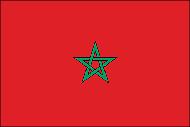
Member(s)
Coalition marocaine contre la peine de mort
on 30 April 2020
The Moroccan Coalition Against the Death Penalty (CMCPM) brings together seven NGOs: -the Moroccan Prison Observatory, -the Moroccan Human Rights Association, -the Moroccan Forum for Truth and Justice, -the Moroccan Organisation for Human Rights, -the Association of Lawyers’ Bars in Morocco, -Amnesty International – Moroccan Section and -the Centre for People’s Rights. Its objectives are […]
Morocco

Member(s)
Women’s Information Consultative Center
on 30 April 2020
The main goal of the Women’s Information Consultative Center is to gather, generalise and disseminate information about women’s human rights and initiatives among women inside and outside Ukraine. Another goal of the Center is to create a discussion about gender issues in the political and social life of Ukraine to achieve real equality in society. […]
Ukraine
Document(s)
Death Penalty for Female Offenders
By Victor Streib / Ohio Northern University, on 1 January 2009
2009
Article
United States
More details See the document
The data herein are updated as often and as quickly as possible, with the last date of entry noted on the cover page. However, given the difficulty of gathering complete information from all jurisdictions and as soon as cases develop, these reports may under-report the number of female offenders under death sentences. The subjects of these reports are female offenders sentenced to death. They are not all referred to as women, since some were as young as age fifteen at the time of their crimes. However, no such very young female offenders are currently under death sentences. —- See bottom left hand corner of web page.
- Document type Article
- Countries list United States
- Themes list Women,
Document(s)
Portuguese : Faça ouvir A sua voz na União Europeia!
By Civil Society Contact Group, on 8 September 2020
2020
Academic report
enenenenenenenenenfresMore details See the document
Facultando informações talhadas à medida sobre as instituições comunitárias ou sobre o modo de funcionamento das ONG europeias, fornecendo igualmente conselhos sobre a actividade de lobbying, este manual de formação, ilustrado com exemplos de campanhas realizadas ao nível europeu, foi elaborado com a intenção de servir as ONG e as(os) activistas que começaram agora a preocupar-se com a definição e a afirmação da sua própria estratégia europeia.
- Document type Academic report
- Themes list Networks,
- Available languages Bulgarian : Как гласът ни да бъде чут в ЕС:Наръчник за НПОRomanian : Cum s v face i vocea auzit în cadrul Uniunii Europene: Îndreptar pentru Organiza iile Non-GuvernamentaleEstonian : Enda kuuldavaks tegemine Euroopa Liidus: juhend vabaühendusteleItalian : Far sentire la propria voce nell’UE Guida per le ONGGerman : Einfluss nehmen in der EU: Ein Handbuch für NROsHungarian : Hallassuk hangunkat az EU-ban: útmutató civil szervezeteknekLatvian : Tava balss Eiropas Savieniba: Rokasgramata NVOSlovene : Naj se slisi vas glas v EU: Prirocnik za nevladne organizacijeMaking your Voice Heard in the EU: A Guide for NGOsFaire Entendre votre voix dans l'UE: Un Guide à l'Usage des ONGHaciéndose oír en la UE: Una Guía para ONG
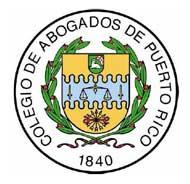
Member(s)
Colegio de Abogados y Abogadas de Puerto Rico
on 30 April 2020
The Puerto Rico Bar Association (Colegio de Abogados y Abogadas de Puerto Rico) represents all the attorneys in Puerto Rico, and has historically taken a very active role in the public debate. Since 2006 the Bar Association has been part of the World Coalition under the umbrella of the Puertorican Coalition Against the Death Penalty, […]
2020
Puerto Rico
Member(s)
Norden Directions
on 30 April 2020
Norden Directions is an Australian non-government organisation founded in 2009. It focuses on policy in relation to social justice and human rights issues both within Australia and overseas. It has contributed to the abolition of the death penalty internationally in public debate over the past decade. Its Director, Professor Peter Norden AO, is an experienced […]
Australia

Member(s)
The Sunny Center Foundation
on 30 April 2020
Ireland
Document(s)
American Death Penalty Exceptionalism, Then and Now
By Jordan Steiker, California Western International Law Journal , on 1 February 2024
2024
Academic Article
United States
More details See the document
Published in October 2023.
The most commonly observed fact of American capital punishment is its present outlier status: the United States (U.S.) is the only developed Western democracy that retains the death penalty, and it does so not simply as a matter of law, but as a matter of practice, conducting numerous executions every year. This “exceptionalism” with respect to the death penalty is noteworthy, but focusing on present-day American retention obscures many additional aspects of American death penalty exceptionalism. This Keynote will trace several ways in which the American death penalty was an outlier at its founding and throughout its subsequent history, as well as the varied aspects of its exceptionalism today. I will conclude by predicting that U.S. exceptionalism will soon come to an end–with an “exceptional” form of death penalty abolition, traceable to the distinctive path of the American death penalty
- Document type Academic Article
- Countries list United States
Member(s)
Kurdistan Human Rights Association-Geneva (KMMK-G)
on 30 April 2020
Kurdistan Human Rights Association-Geneva (KMMK-G) is an independent organization, with no political affiliation. KMMK-G was established in 2006 to serve as a bridge between the Kurdish civil society and the United Nations (UN) agencies and International institutions on the one hand, and the Kurdish and Iranian civil society on the other hand. The organization aims […]
2020
Iran (Islamic Republic of)

Member(s)
Chaml (Non-Violent Non-Sectarian Lebanese Citizenly Youth)
on 30 April 2020
Mandate and goals : Spread the culture of non-violence, non-sectarianism and human rights and advocate for political/legal change that is relevant to our values. We have five principles: Non-sectarianism, Non-violence, Justice, Democracy, and Sovereignty. Kind of actions : – Raise awareness, protest, and lobby to pass the Lebanese Personal Status law – Document sectarian hate […]
Lebanon
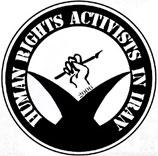
Member(s)
Human Rights Activists in Iran (HRAI)
on 30 April 2020
Human Rights Activists in Iran (also known as HRAI and HRA) is a non-political and non-governmental organization comprised of advocates who defend human rights in Iran. HRAI was founded in 2006 and aims to promote, safeguard and sustain human rights in Iran. The organization keeps the Iranian community and the world informed by monitoring human […]
Iran (Islamic Republic of)

Member(s)
Cornell Center on Death Penalty Worldwide
on 30 April 2020
A research, training, and advocacy center focused on promoting international human rights law in the application of the death penalty.
United States
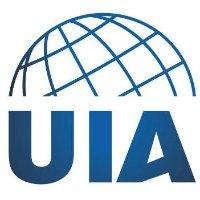
Member(s)
International Association of Lawyers
on 30 April 2020
Established in 1927, and with members in 110 countries, the UIA (International Association of Lawyers) is a global and multi-cultural organization for the legal profession that facilitates professional development, stimulates learning and networking, and promotes the Rule of Law. UIA is open to all the world’s lawyers, both general practitioners and specialists. The UIA’s members […]
France

Member(s)
Parliamentarians for Global Action (PGA)
on 30 April 2020
Parliamentarians for Global Action (PGA), a non-profit, non-partisan international network of over 1,200 legislators in approximately 130 elected parliaments around the globe, aims to promote peace, democracy, the rule of law, human rights, gender equality and population issues by informing, convening, and mobilizing parliamentarians to realize these goals. The network of legislators’ programme of work […]
United States
Member(s)
Kenya Human Rights Commission
on 30 April 2020
Kenya

Member(s)
Serbia Against Capital Punishment (SACP)
on 30 April 2020
Serbia Against Capital Punishment (SACP) was formed in 2012 to work towards universal abolition of the death penalty and to oppose its reintroduction in Serbia or any other country. It also opposes torture, as well as all other inhuman and degrading punishments. SACP maintains a data base of more than 7.000 persons sentenced to death […]
Serbia
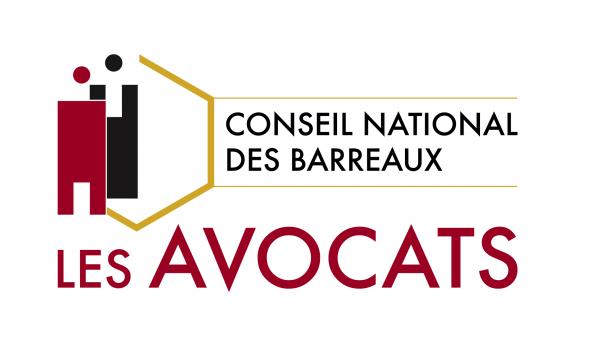
Member(s)
Conseil national des barreaux
on 30 April 2020
France
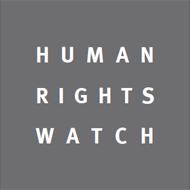
Member(s)
Human Rights Watch
on 30 April 2020
Human Rights Watch is a nonprofit, nongovernmental human rights organization made up of more than 275 staff members around the globe. Its staff consists of human rights professionals including country experts, lawyers, journalists, and academics of diverse backgrounds and nationalities. Human Rights Watch is known for its accurate fact-finding, impartial reporting, effective use of media, […]
France
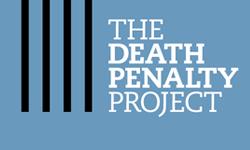
Member(s)
The Death Penalty Project (DPP)
on 30 April 2020
The Death Penalty Project is an international legal action charity, based in London, working to promote and protect the human rights of those facing the death penalty. We provide free legal representation to death row prisoners around the world, with a focus on Commonwealth countries, to highlight miscarriages of justice and breaches of human rights. […]
United Kingdom
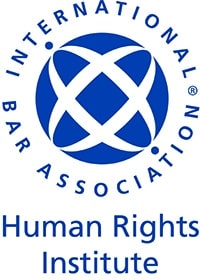
Member(s)
International Bar Association’s Human Rights Institute (IBAHRI)
on 14 March 2023
The International Bar Association’s Human Rights Institute (IBAHRI) works with the global legal community to promote and protect human rights and the independence of the legal profession worldwide. The IBAHRI is an autonomous and substantively independent entity of the International Bar Association (IBA), the world’s leading organisation of international legal practitioners, bar associations and law […]
2023
United Kingdom
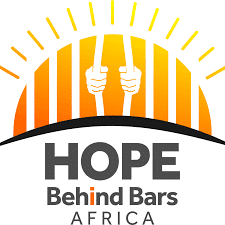
Member(s)
Hope Behind Bars Africa
on 5 September 2023
Hope Behind Bars Africa provides free legal services and direct support to indigent individuals in contact with the justice system while promoting criminal justice reforms through research, evidence-based advocacy, and technology.
2023
Nigeria
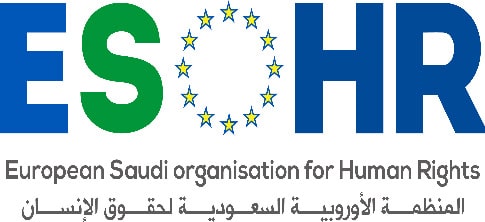
Member(s)
European Saudi Organization for Human Rights (ESOHR)
on 29 November 2023
Founded in 2013 in response to extensive human rights abuses in Saudi Arabia, European Saudi Organization for Human Rights (ESOHR), which is based in Berlin, emerged in the face of a robust campaign aimed at suppressing civil society and curtailing the activities of human rights advocates. ESOHR is committed to the abolition of the death […]
2023
Saudi Arabia
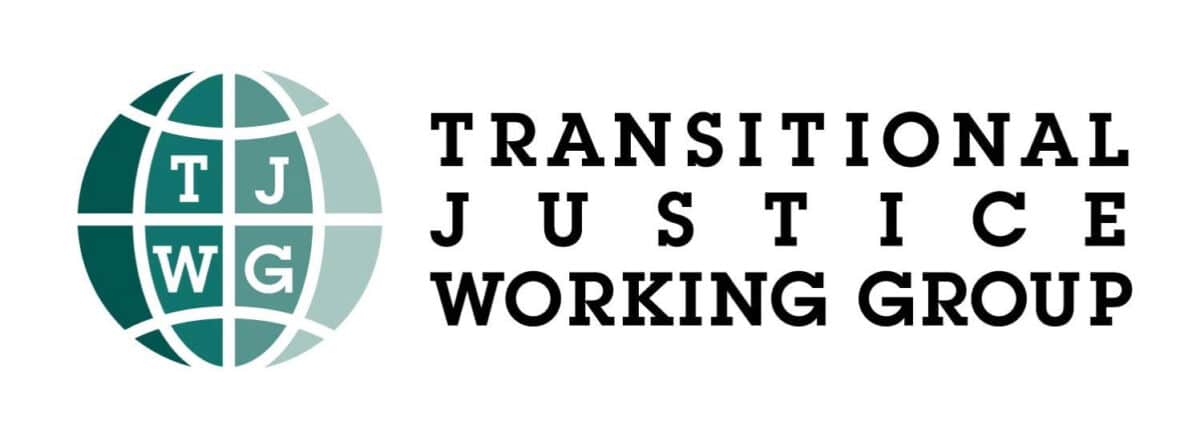
Member(s)
Transitional Justice Working Group (TJWG)
on 15 December 2023
As a human rights documentation NGO, TJWG has published biennial reports on public executions in North Korea based on interviews with North Korean defectors in 2017, 2019 and 2021. TJWG has also been calling for the complete abolition of the death penalty in North and South Korea, which has maintained it in the laws even […]
2023
Republic of Korea

Member(s)
Youth Safety Awareness Initiative (Crime Si Poa®)
on 27 March 2024
Youth Safety Awareness Initiative mission is to promote social justice and a crime-free society through education, advocacy and social enterprise, targeting children and young people. Youth Safety Awareness Initiative primarily focus on discouraging at-risk and vulnerable youth from engaging in criminal activities and addressing threats to peace through behavioral and attitudinal change, while promoting the […]
2024
Kenya

Member(s)
Humanity Diaspo
on 27 March 2024
WOMEN’S HUMANITARIAN AND DEVELOPMENT NGO Humanity Diaspo is a non-profit, humanitarian, development, TechForGood and feminist non-governmental organisation (NGO). Humanity Diaspo is independent of any political, religious or philosophical movement. Humanity Diaspo’s aim, where appropriate in partnership with local entities, is to support people in situations of distress, exile and migration, precariousness and exclusion in all […]
France

Member(s)
Abdorrahman Boroumand Center for the Promotion of Human Rights and Democracy in Iran
on 30 April 2020
Abdorrahman Boroumand Center previously know as Abdorrahman Boroumand Foundation Mandate and goals : Promoting universal human rights in Iran and documenting the violation of the right to life in the Islamic Republic of Iran Kind of actions : Creation of an online memorial to the victims of the violation of the right to life in […]
2020
Iran (Islamic Republic of)

Member(s)
Città di Reggio Emilia
on 30 April 2020
For a long time, the city of Reggio Emilia has been proud of its strong vocation for the struggle in defense of Human Rights, which is supported by the commitment of the entire community. An example is that, in order to strengthen its contribution in the struggle against apartheid in South Africa, the city signed […]
Italy

Member(s)
Barreau de Paris
on 30 April 2020
The Paris Bar was founded under the reign of Louis XIV. Nowadays, it represents around 20 000 lawyers, i.e. nearly half of those practicing in France. Its prime objectives are to organise and structure the legal profession, to strengthen training and adapt it to the deep changes occurring in society and to expand the role […]
France
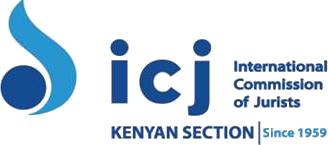
Member(s)
Kenyan Section of the International Commission of Jurists (ICJ-KENYA)
on 30 April 2020
Mandate and goals : – To develop, strengthen and protect the principles of the rule of law in Kenya. – Develop, maintain and protect the independence of the judiciary and the legal profession in Kenya. – Protect and promote the enjoyment of human rights in Kenya and Africa. Kind of actions : – Legal research […]
Kenya

Member(s)
Fédération Syndicale Unitaire (FSU)
on 30 April 2020
The United Trade-Union Federation (FSU) brings together 22 national trade unions in the fields of education, teaching, research, culture, training and social integration. They represent the majority or a large proportion of workers in their professional fields. FSU unites these national trade unions by combining diversity, pluralism and unity. Its characteristic organisational innovation is to […]
France

Member(s)
International Federation for Human Rights (FIDH)
on 30 April 2020
The International Federation for Human Rights (FIDH)’s mandate is to act effectively to ensure all the rights laid down in the Universal Declaration of Human Rights are respected. These include civil and political rights, as well as economic, social and cultural ones. The FIDH is a federation of 141 leagues in 100 countries. It coordinates […]
France

Member(s)
International Federation of ACATs (FIACAT)
on 30 April 2020
The International Federation of ACATs (Action by Christians for the Abolition of Torture), FIACAT, is an international non-governmental human rights organisation, set up in 1987, which works towards the abolition of torture and the death penalty. The Federation brings together some thirty national associations, the ACATs, present in four continents. FIACAT – representing its members […]
France

Member(s)
National Association of Criminal Defense Lawyers (NACDL)
on 30 April 2020
The National Association of Criminal Defense Lawyers is the preeminent organization advancing the mission of the criminal defense bar to ensure justice and due process for persons accused of crime or wrongdoing. A professional bar association founded in 1958, NACDL’s 12,000-plus direct members in 28 countries – and 90 state, provincial and local affiliate organizations […]
United States
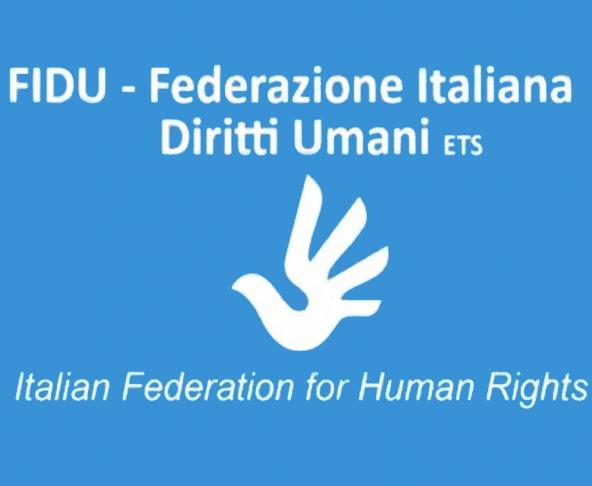
Member(s)
Italian Federation for Human Rights (FIDU)
on 30 April 2020
Active since 1987 as Italian Helsinki Committee, FIDU promotes the protection of human rights as enshrined in the Universal Declaration of Human Rights of 1948, the International Covenant on Civil and Political Rights and the International Covenant on Economic, Social in other relevant international documents. FIDU therefore intends to work to spread the knowledge of […]
Italy
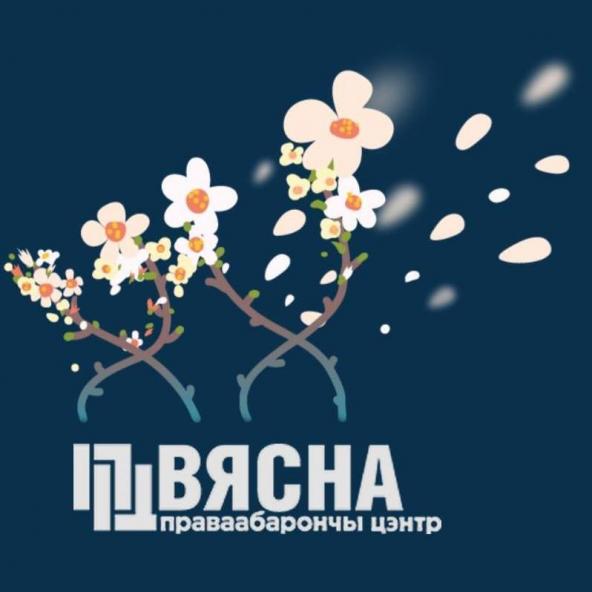
Member(s)
The Human Rights Centre “Viasna”
on 30 April 2020
The Human Rights Centre “Viasna” is a non-governmental human rights organization active since 1996. It is a nation-wide NGO with a central office in Minsk and a dozen local offices across the country. Viasna has about 200 members. In 2003, the Supreme Court groundlessly cancelled the registration of Viasna for its participation in the observation […]
Belarus

Member(s)
Journey of Hope… From Violence to Healing
on 30 April 2020
“Journey of Hope…from Violence to Healing is an organisation led by murder victim family members joined by death row family members, family members of the executed, the exonerated, and others with stories to tell, that conducts public education speaking tours and addresses alternatives to the death penalty. Every year, the organisation arranges a Journey of […]
United States

Member(s)
Harm Reduction International
on 30 April 2020
Harm Reduction International is a leading NGO dedicated to reducing the negative health, social and legal impacts of drug use and drug policy. We promote the rights of people who use drugs and their communities through research and advocacy to help achieve a world where drug policies and laws contribute to healthier, safer societies. Since […]
United Kingdom
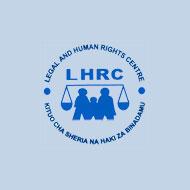
Member(s)
Legal and Human Rights Centre (LHRC)
on 30 April 2020
The Legal and Human Rights Centre (LHRC) is registered as a private, non-governmental, non-partisan and non-profit making organization based in Tanzania, East Africa. The LHRC works to create legal and human rights awareness among the public, in particular the underprivileged section of the society of Tanzania, through legal and civic education, provision of legal aid, […]
United Republic of Tanzania

Member(s)
Ligue des droits de l’Homme
on 30 April 2020
Founded in 1898 during the Dreyfus affair, the League for Human Right (LDH) has a rich history thanks to a century of activism and attentive monitoring of all major contemporary issues. Originally, its mandate was to defend an innocent man, victim of anti-Semitism and reason of state, but the LDH expanded its actions to include […]
France
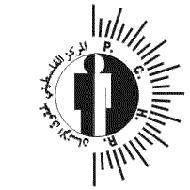
Member(s)
Palestinian Center for Human Rights
on 30 April 2020
The Palestinian Centre for Human Rights (PCHR) is an independent Palestinian human rights organisation based in Gaza City. It enjoys Consultative Status with the ECOSOC of the United Nations and is an affiliate of the International Commission of Jurists (Geneva), the International Federation for Human Rights (Paris), the Euro-Mediterranean Human Rights Network (Copenhagen) and the […]
State of Palestine

Member(s)
People of Faith Against the Death Penalty
on 30 April 2020
People of Faith Against the Death Penalty (PFADP) is a nongovernmental organisation whose mission is to educate and mobilise faith communities to act to abolish the death penalty in the United States. Founded in 1994 in North Carolina, PFADP focuses its programs on organising among faith communities in the Southern United States, where most executions […]
United States

Member(s)
Ville de Braine-l’Alleud
on 30 April 2020
The town of Brain-l’Alleud is located in Brabant wallon in the Hain valley, about twenty kilometres from Brussels. It has 37,000 inhabitants. Previously the site of the Battle of Waterloo in 1815, today the town welcomes much more peaceful activities, including a large number of NGOS and in particular an Amnesty International group and the […]
Belgium

